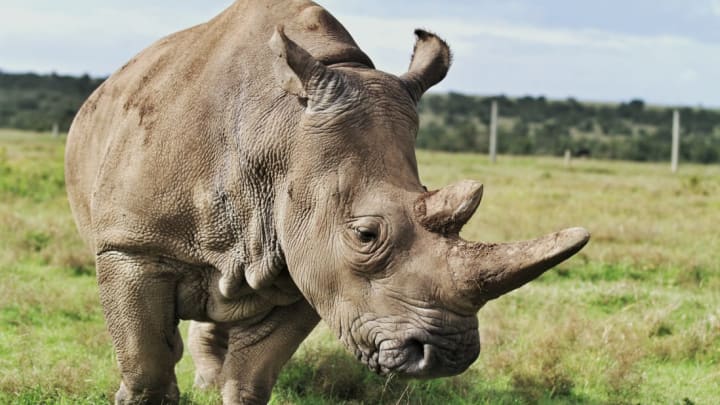At first glance, the image of a rhinoceros bound by their feet and swinging upside-down from a helicopter provokes a bit of concern. It doesn’t look comfortable for the animal and seems almost haphazard. However, it’s a key element to their ongoing survival.
In Africa, black rhinos are a target for poachers, who are able to peddle their horns in lucrative alternative medicine and jewelry markets. Over a 30-year span between the 1960s and 1990s, their population was reduced by a staggering 98 percent, to the point that fewer than 3000 remained.
To stave off poachers, conservationists relocate rhinos to more remote and inaccessible areas. Because roads may not be available, airlifting the animals becomes the only effective way to transport them, leading to the unusual sight of a massive rhino swinging from a helicopter.
But why upside-down? Moving a rhino requires massive amounts of sedation, which can lead to hypoxemia, or low oxygen levels in the blood. By keeping the animal upside-down, the airway is relatively unobstructed. Positioning a rhino on its side leads to reduced oxygen being delivered to its body while under anesthesia.
The strategy was supported by a recent study published in the Journal of Wildlife Diseases, which looked at 12 rhinos suspended both laterally and by their feet. Noticeable improvements in arterial oxygen pressure were observed when the animal was upside-down.
Using a stretcher also leads to longer preparation times—up to 30 minutes, as opposed to just a few minutes to secure their feet to the straps. The less time the rhino spends under sedation, the better.
The practice of flying rhinos, if not exactly first-class, is having a demonstrable effect on their population. It’s now around 5600, or more than double that of the 1990s. Rhino poaching in Namibia is down 40 percent from 2019.
[h/t CNN]
